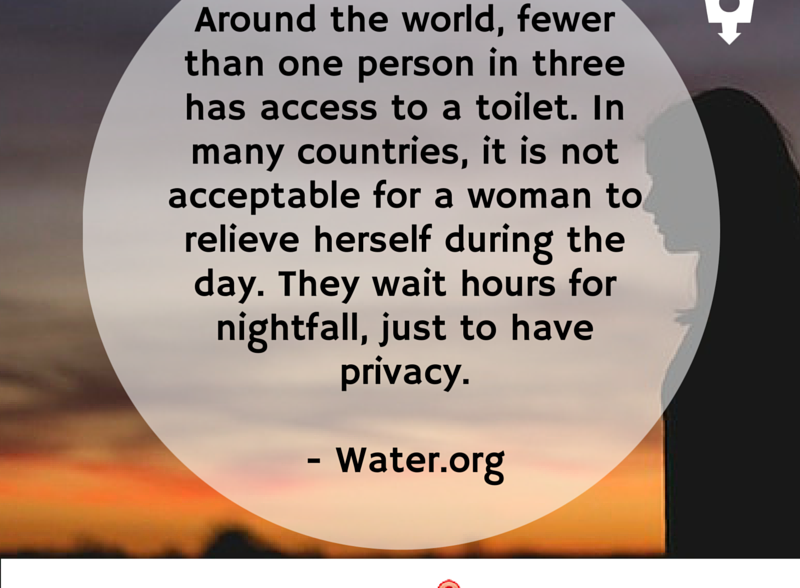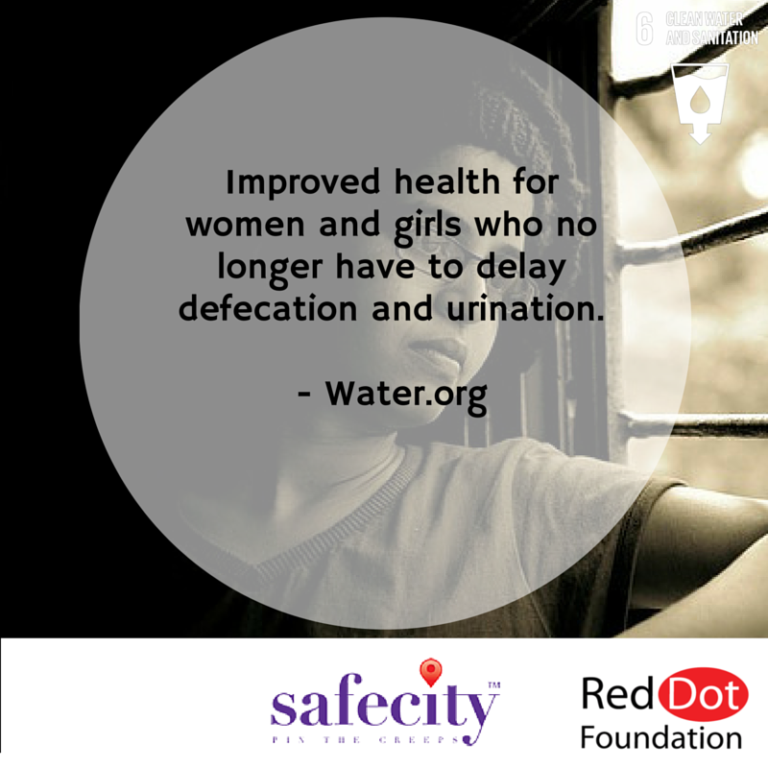SDG 6- Clean Water and Sanitation is a MUST for Women

Ayesha Mehrotra is pursuing her undergraduate degree in Bangalore. She is passionate about the environment and various social issues. Through her writing at this platform, she hopes to encourage the millions of unheard voices to speak out.
SGD 6- Clean Water and Sanitation: A Must for Women
Gender is generally associated with unequal power and access to choices and resources. The different positions of women and men are influenced by historical, religious, economic and cultural realities. These relations and responsibilities can and definitely change over time. Inadequate access to safe, hygienic and private sanitation facilities as well as clean water is a source of shame, physical discomfort and insecurity for millions of women across the world.
Why are women more vulnerable to this situation?
Research suggests that women and girls in low-income countries spend 40 billion hours a year collecting water. In Africa, 90% of the work of gathering water and wood, for the household and for food preparation, is done by women. Providing access to clean water close to the home can dramatically reduce women’s workloads, and free up time for other economic activities. For their daughters, their time can be used to attend school.
Cultural norms frequently make it unacceptable for women to be seen defecating—forcing many women to leave home before dawn or after nightfall to maintain privacy. When women have to wait until dark to defecate and urinate in the open they tend to drink less during the day, resulting in all kinds of health problems such as urinary tract infections, dehydration, kidney failure and stomach infections. Due to unhygienic sanitary conditions women can contract bacterial and fungal infections in the vaginal area which can be painful and result in other problems such as infertility.
One of the many problems that have been observed is that the latrine designs, especially for primary and secondary schools, are mainly prepared by male masons. This has resulted in girls staying away from schools when they are menstruating, even when their schools have latrines. In the case of small boys too, the urinals are often too high. Latrines should be constructed which are sensitive to the special needs of girls.
Why must women be involved?
It has become increasingly accepted that women play an important role in water management and that this role could be enhanced through the strategy of gender equality. Sanitation facilities and women’s safety go hand in hand.
The importance of involving both women and men in the management of water and sanitation and access-related questions has been recognized at the global level. It is stated explicitly that women play an important role in the provision, management, and safeguarding of water.
How can the problem of unequal access to water and sanitation be overcome?
The differences and inequalities between women and men influence how individuals respond to changes in water resources management. Understanding gender roles, relations, and inequalities can help explain the choices people make and their different options. Involving both women and men in integrated water resources and sanitation initiatives can increase project effectiveness and efficiency. India is facing a massive sanitation-access crisis.
There is a need for gender responsive budgeting and planning in the toilet initiative. Women and girls should be consulted and involved in the planning process of sanitation policies and programs to ensure that their needs are incorporated. There should be promotion of improved sanitation and hygiene that incorporates gender concerns. Interventions that include women and men and address gender concerns can go a long way in promoting improved sanitation and hygiene. Policy initiatives that promote safe sanitation for the poor should be strengthened. Efforts should lead to increasing the subsidy amount for toilet construction and ensure that it reaches the vulnerable populations.
Keeping the Sustainable Development Goal-6 in mind, it is high time we do something about this and spread the word. Awareness and implementation are two key areas where we, as responsible citizens HAVE to focus on.


